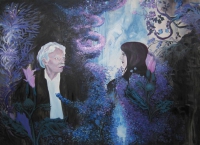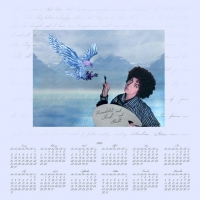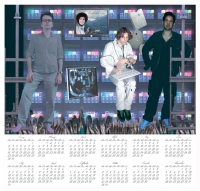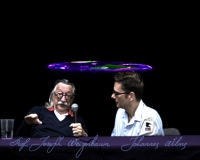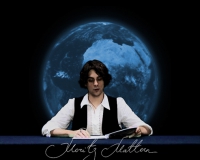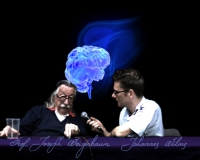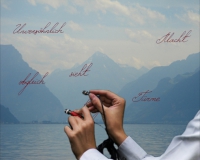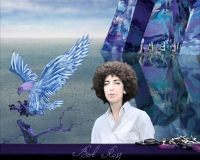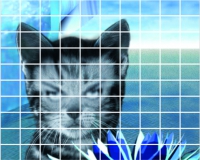For the presentation of a DVD edition of “TK News Berlin” at the Preview Art Fair, Joulia Strauss developed a complex framework, for Jette Rudolph Gallery: the installation “Art Supply”. The work has followed a question: who is the author of today’s artistic production?
Berlin art historian and thinker Johannes Wilms was standing at the booth, offering his consultation services to artists and to the art world at large. Programmer and computer graphics expert Moritz Mattern, wrapped in cables, was rented out to contemporary artists. An atavistic display case with brushes, pencils and shelves with sketchbooks and oil paints was showing the utilities of past arts.
As an ironic example of a successful artist consultation, a painting by Joulia Strauss is exposed: the artist has asked philosopher Friedrich Kittler what he would depict if he were a painter. The resultant painting is a large format portrait of the philosopher with the artist’s self portrait. The landscape quotes motifs from earlier Strauss works and alludes especially to Kittler’s performance at the Museum of Freud’s Dreams in St. Petersburg.
At the exhibition, the video work was projected in perpetuum: “TK News – 1. The Earth Is Flat – Bob Ross Is Not Dead”, by Joulia Strauss and Moritz Mattern. Scientific arguments that concern Earth flattening in a discussion between Johannes Wilms and pioneering Artificial Intelligence researcher Prof. Joseph Weizenbaum are didactically followed by Bob Ross, who is dramatized by Strauss herself. The American master of the 3-cent landscape painting, and hero of many a proper housewife, is not dead. Rather, he exists as a member of the Euro-Continental Vampire Club, residing in Berlin-Mitte and revealing his secret cultural techniques via rehabilitation of abused animals for the representation of power. In the weather forecast that follows, a new romantic poem is written across the screen with the holy 3D computer fire of forecaster Strauss’ hand.
Art Supply expounds the problem of the situation of aesthetic production under conditions of developed technologies. Unpayable orders were given for the artistic practices of the future.
